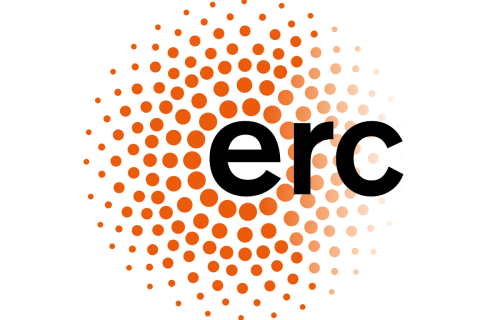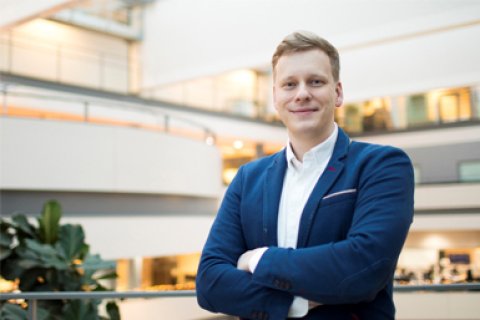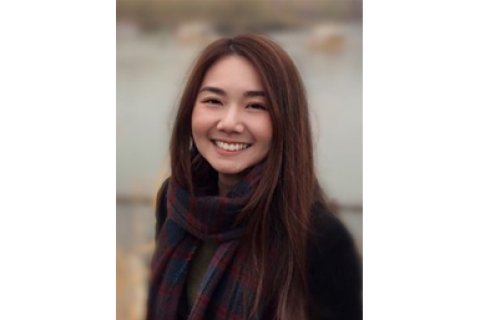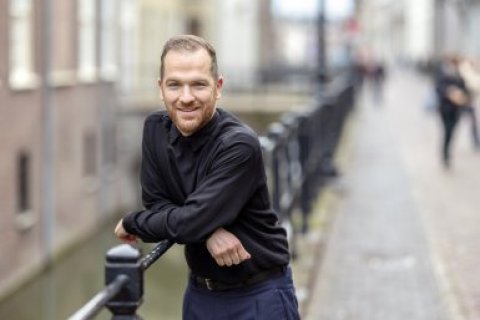ERC Starting Grant for seven Utrecht-based researchers
1,5 million euros for a research team or own programme

Seven Utrecht-based reseachers have been awarded an ERC Starting Grant. The European Research Council awarded the €1.5 million grant to Danny Broere, Bas van Ravensteijn, Tatiana Acevedo Guerrero, Xiao-Shan Yap, Tessa Diphoorn, Ruud Hortensius en Mirjam Belderbos (Princess Máxima Center). The grant helps them to set up their own research project, assemble a research team and develop scientific ideas.
Projects and laureates
N2-CONVERT: Converting N2 directly into amines through multimetallic catalysis
With my team, I'm on a quest to gain fundamental insights into how we can make inert nitrogen gas react using multiple metal atoms. Ultimately, our goal is to make the production of nitrogen-containing molecules more sustainable.”

Molecules that contain nitrogen atoms, known as amines, are crucial components in various products like pharmaceuticals, paints, and plastics. All the nitrogen atoms in these compounds come from nitrogen gas in the air. However, acquiring these nitrogen atoms is challenging because nitrogen gas doesn't readily react with other molecules. By using catalysts — substances that can accelerate chemical reactions without being consumed themselves— nitrogen can, in fact, react. However, this process currently consumes a substantial amount of energy, as it requires high temperatures and involves multiple steps.
With the help of ERC funding, Danny Broere aims to develop design strategies for creating new molecular catalysts capable of converting nitrogen gas into amines in a single step. He draws inspiration from nature, where natural catalysts can convert nitrogen at room temperature, whereas chemists typically need temperatures ranging from four hundred to six hundred degrees Celsius. Broere hopes to learn how nature accomplishes this and intends to combine this knowledge with the extensive toolkit available to chemists. This way, he aims to contribute to making the amine production process more sustainable.
Broere designs the new catalyst molecules himself, placing two to four metal atoms within an organic molecule. He can vary their distance and arrangement relative to each other. Subsequently, he can test these systems, compare them, and study the effectiveness and efficiency of each catalyst design.
POLYPATH: The Journey Matters: Pathway Complexity in Polyplex Formation
With the new microscope, we can track in real-time how pharmaceutical nanoparticles are absorbed into a cell and how they function within it. This allows us to systematically examine the properties such particles need to work effectively.

Bas van Ravensteijn and his team are developing nanomaterials to safely transport medication to the right target locations within the human body. Their focus is on polymeric nanoparticles, elongated molecules capable of encapsulating genetic material with pharmaceutical properties and delivering it precisely. Nanopharmaceutics prevent premature breakdown of medications in the body and enhance their absorption.
The awarded ERC Starting Grant provides Van Ravensteijn with the opportunity to research a new manufacturing process for nanopharmaceutics. This new technique results in better-defined nanoparticles, leading to more efficient drug delivery. The grant also enables him to acquire a specialized microscope, which he will use to investigate which properties, such as shape and structure, optimize the performance of nanoparticles as drug carriers.
It's still too early to make concrete statements about the effectiveness of these new polymeric nanopharmaceutics in treating diseases, but Van Ravensteijn sees potential in these particles. They may potentially contribute to advanced treatments in the future, such as the targeted treatment of tumors and the application of gene therapy for various medical conditions.
HOMESCAPES: Homescapes make the world we live in? A multi-sited study to unpack more-than-human
I will be able to carry out a project in which, after training, community members will work together with social scientists to pool their lived experiences and interpret them

Thanks to this grant, Guerrero and her team will embark on a study of the day-to-day life of homes in in Semarang, San Andrés, and Maputo. The low-income residents in all three medium-sized, ‘ordinary’ cities rely on different water sources due to the unreliability of the municipal supply systems. In Semarang residents mostly depend on groundwater, in San Andrés mostly on harvested rain, and in Maputo on piped intermittent water. By studying homescapes Guerrero will be able to interrogate the taken-for-granted, shedding light on both the repressive and emancipatory dimensions of the everyday.
PLANETSTEWARDS: Planetary stewardship in view of Earth-Space sustainability
PLANETSTEWARDS will help unravel how we may get to a future whereby human ventures in outer space will prioritise earth-space sustainability.

Human activities in outer space have seen an exponential rise in recent years, but we know far too little about how they might impact the environmental conditions on Earth and in space. At the moment, different space actors - driven by different values - envision different stewardship approaches to solve sustainability crises on a planetary level, through varied space governance strategies as well as the exertions of influences on socio-technical, cultural, and political activities on Earth.
Yap and her research team will analyse and compare the different planetary stewardship approaches (state-driven, market-driven, and community-driven) and how they impact earth-space sustainability in terms of environmental and social dimensions.
ARMIES: Making Sense of Communities of Arms
With my research project, I hope to understand, among other things, the role of firearms in diverse societies.

Tessa Diphoorn's project is an ethnographic study and the various researchers will immerse themselves in groups of communities where firearms play a central role, such as gun owners associations and hunting clubs. Diphoorn: "These communities can be disruptive within societies, and exercise enormous power."
F-AI-MILY: Understanding and embracing artificial agents’ impact on the social dynamics of families
We think that artificial intelligence can be a tool to change the social dynamics within these families, if necessary, for the better.

Ruud Hortensius will focus his project on artificial intelligence within families. Hortensius: "We see that families are increasingly using artificial intelligence, such as virtual assistants Alexa and Google Home, and physical robots. We don't yet know what impact these interactions have on family dynamics."
RESTART: How is blood (re-)made? Regeneration of human hematopoietic stem cells after transplantation
Mirjam Belderbos, appointed at the Princess Máxima Center, receives an ERC Starting Grant of €1.5 million for the RESTART research project.
The European Research Council (ERC) is awarding an ERC Starting Grant to four hundred scientists this year. Six of these laureates are researchers at Utrecht University and one is appointed at the Princess Máxima Center. The funding totals €628 million and is part of the Horizon Europe programme.

